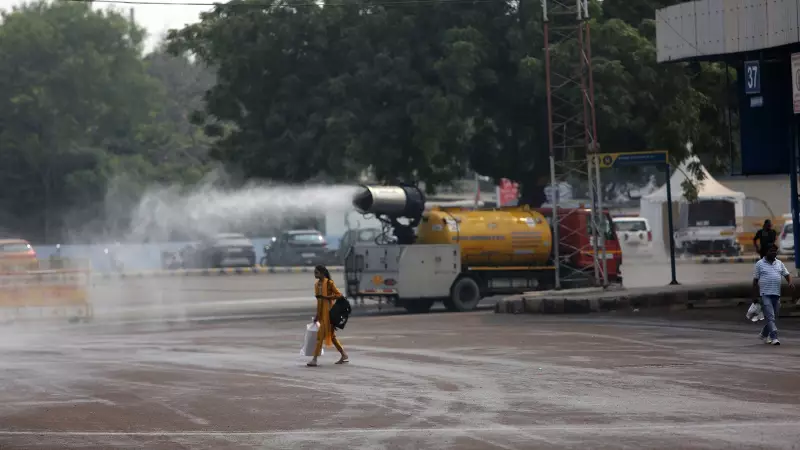
In the midst of Delhi's ongoing battle with hazardous air quality, a curious sight has emerged at critical pollution monitoring stations across the capital. Water sprinklers have been operating continuously around these facilities, creating a visible mist that's now at the center of a growing environmental controversy.
The Round-the-Clock Water Operation
Multiple monitoring stations, including the crucial R K Puram and Punjabi Bagh locations, have witnessed sprinklers running non-stop in their vicinity. This unusual measure comes as Delhi's Air Quality Index (AQI) continues to hover in the 'severe' category, posing significant health risks to millions of residents.
Official Justification and Public Skepticism
The Central Pollution Control Board (CPCB) has defended these measures as part of standard pollution control protocols. "Sprinkling water helps settle dust particles and provides temporary relief from particulate matter," explained a senior official who requested anonymity.
However, environmental activists and residents have raised eyebrows at the timing and location of these operations. Many question whether this represents a genuine effort to combat pollution or merely a temporary fix that creates artificial improvements around monitoring points.
The Broader Pollution Context
Delhi's air pollution crisis has multiple contributors, including:
- Vehicle emissions from the city's massive traffic
- Industrial pollution from surrounding areas
- Construction dust from ongoing development projects
- Seasonal agricultural burning in neighboring states
The current sprinkler initiative represents just one of many measures being implemented, but critics argue it addresses symptoms rather than root causes.
Monitoring Station Concerns
Environmental experts have expressed concern that localized sprinkling near monitoring stations could potentially skew air quality readings. While water does help settle particulate matter, the effect is highly localized and temporary, leading to questions about the accuracy of pollution data being collected.
"What we need are comprehensive, city-wide solutions rather than point-based interventions," noted Dr. Priya Sharma, an environmental researcher studying urban air quality patterns.
Looking Beyond Temporary Measures
As the debate continues, the fundamental question remains: Are these measures providing real relief or merely creating the illusion of action? With Delhi residents facing genuine health emergencies due to poor air quality, the demand for sustainable, long-term solutions grows louder by the day.
The sprinklers continue their rounds, even as the city searches for more permanent answers to one of its most persistent environmental challenges.





